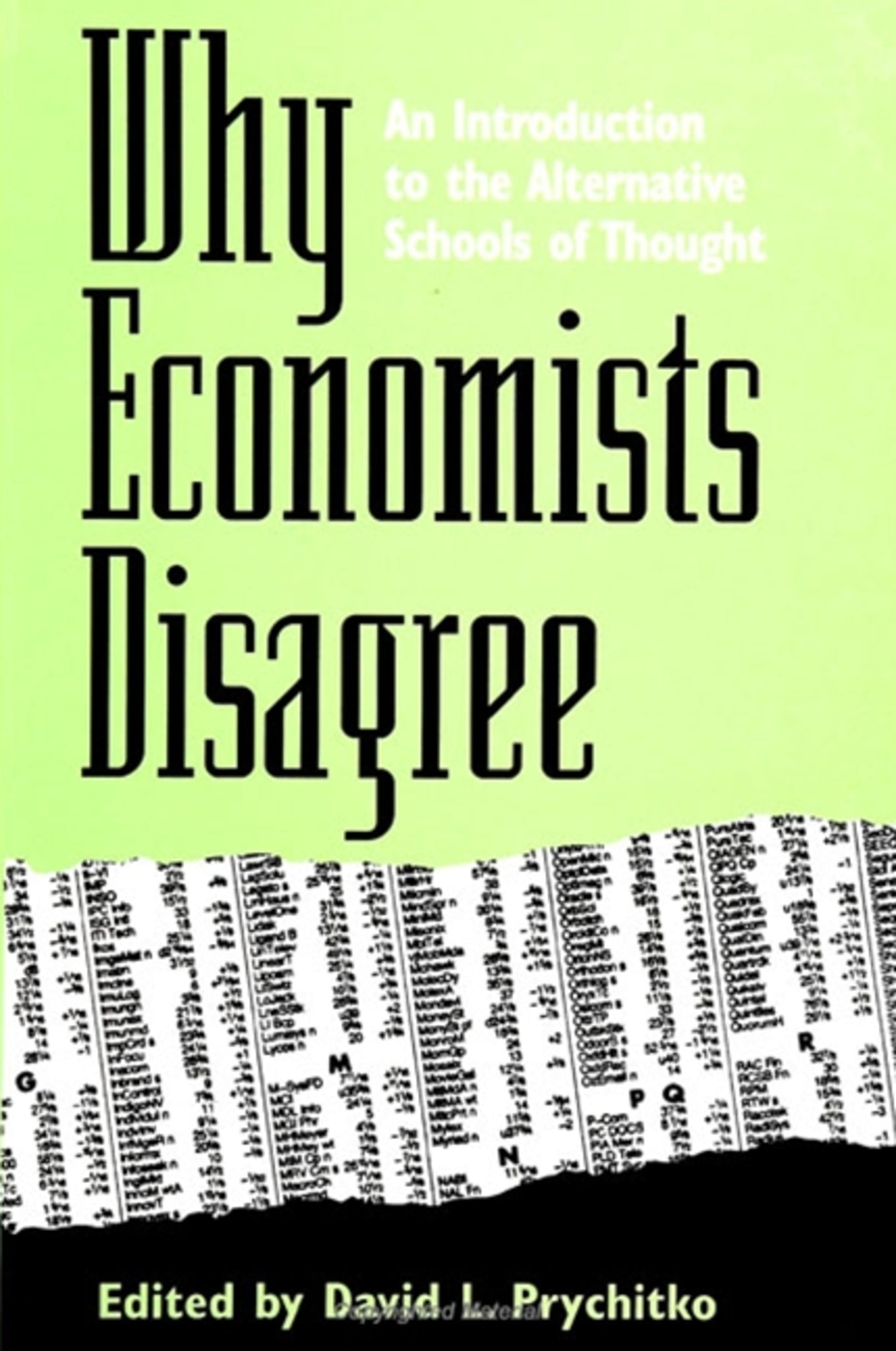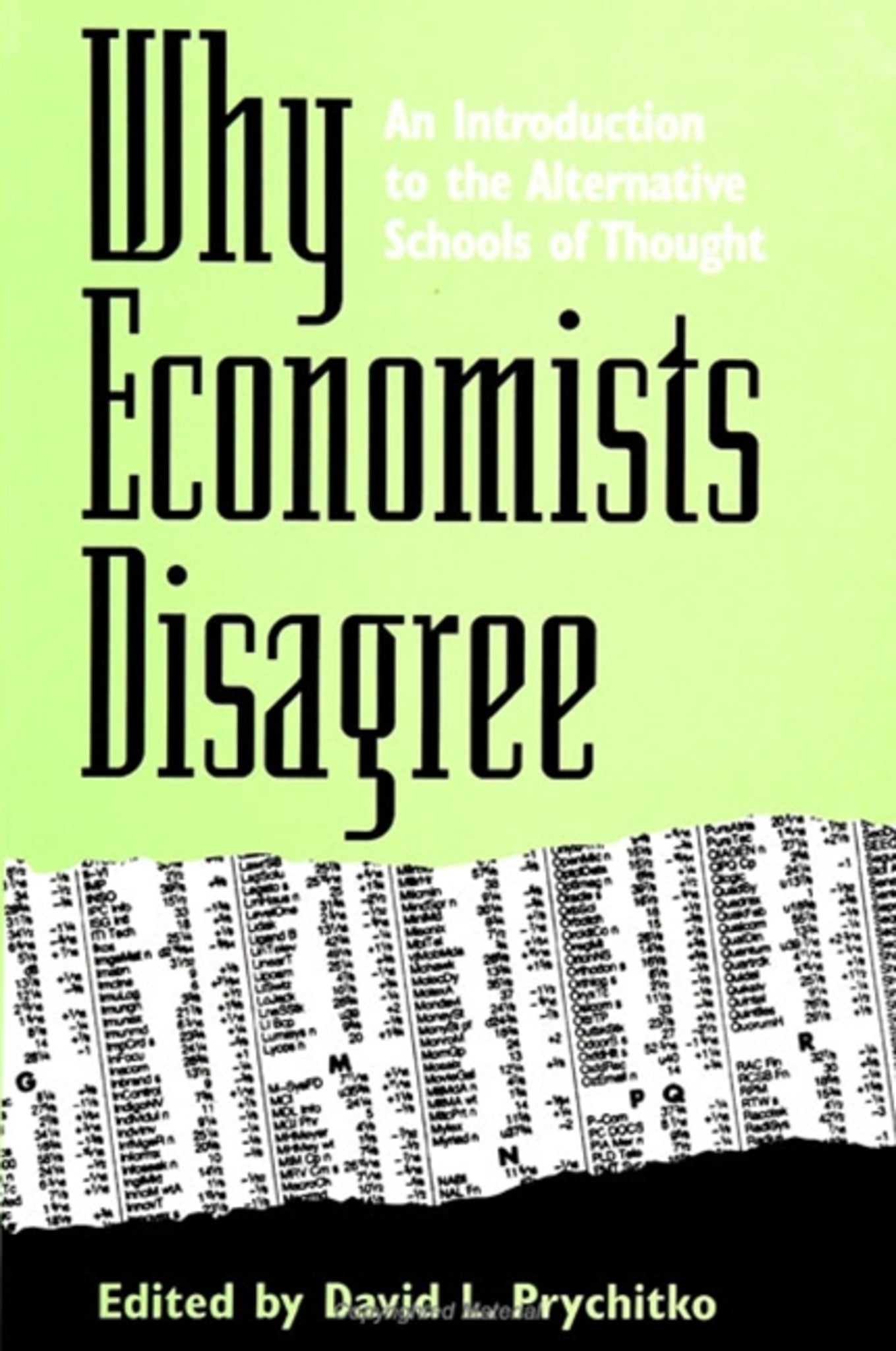We're sorry. An error has occurred
Please cancel or retry.
Why Economists Disagree

Some error occured while loading the Quick View. Please close the Quick View and try reloading the page.
Couldn't load pickup availability
- Format:
-
04 December 1997

Provides a convenient introduction to heterodox alternatives to neoclassical economics.
Economists disagree. They disagree over policy, prediction, and matters of pure theory. They even disagree over why they disagree. Why Economists Disagree demonstrates that the "crisis" of contemporary economics may actually be a sign of healthy disagreement and fresh thinking over the nature and scope of economic theory and policy.
Since the 1980s, several dissenting schools of thought have emerged that offer serious methodological and theoretical challenges to mainstream economics. Why Economists Disagree provides a convenient introduction to Austrian, Post Keynesian, Institutionalist, Feminist, Marxist, and other heterodox alternatives to neoclassical economics. Written by eminent economists within each tradition, the book's chapters convey both the main characteristics, the controversies, and disagreement within each school of thought.
Contributors include Jack Amariglio, Paul Davidson, William M. Dugger, Alfred S. Eichner, Roger W. Garrison, Albert O. Hirschman, Geoffrey M. Hodgson, Israel M. Kirzner, Arjo Klamer, J.A. Kregel, Ludwig M. Lachmann, Tony Lawson, Deirdre McCloskey, David F. Ruccio, Warren J. Samuels, Howard J. Sherman, William R. Waters, Thomas E. Weisskopf, and Frances R. Woolley.


"This book is an argument by counterexample. Following Friedman, Thurow, and others, most economists deny that substantial disagreement exists within the profession. Prychitko shows this simply isn't so. Economists do disagree, and they disagree over theory. By way of proof, the book presents a selection of heterodox articles." — Roger Koppl, Fairleigh Dickinson University
Acknowledgments
Introduction: Why Economists Disagree: The Role of the Alternative Schools of Thought
David L. Prychitko
Part I. Austrian Economics and the Market Process
1. Time and Money: The Universals of Macroeconomic Theorizing
Roger W. Garrison
2. The Driving Force of the Market: The Idea of "Competition" in Contemporary Economic Theory and in the Austrian Theory of the Market Process
Israel M. Kirzner
3. From Mises to Shackle: An Essay on Austrian Economics and the Kaleidic Society
Ludwig M. Lachmann
Part II. Post-Keynesian Economics for an Uncertain World
4. Reviving Keynes's Revolution
Paul Davidson
5. An Essay on Post-Keynesian Theory: A New Paradigm on Economics
Alfred S. Eichner and J.A. Kregel
6. The Nature of Post Keynesianism and Its Links to Other Traditions
Tony Lawson
Part III. Beyond the Market: Social and Institutional Economics
7. Institutional Economic Theory: The Old Versus the New
Geoffrey M. Hodgson
8. Social Economics: A Solidarist Perspective
William R. Waters
9. Comparison of Marxism and Institutionalism
William M. Dugger and Howard J. Sherman
Part IV. The Changing Face of Radical Political Economy
10. Postmodernism, Marxism, and the Critique of Modern Economic Thought
Jack Amariglio and David F. Ruccio
11. Toward a Socialism for the Future, in the Wake of the Demise of the Socialism of the Past
Thomas E. Weisskopf
Part V. Where Do We Go From Here? New Philosophical Issues
12. The Feminist Challenge to Neoclassical Economics
Frances R. Woolley
13. Against Parsimony: Three Ways of Complicating Some Categories of Economic Discourse
Albert O. Hirschman
14. The Methodology of Economics and the Case for Policy Diffidence and Restraint
Warren J. Samuels
15. The Rhetoric of Disagreement
Arjo Klamer and Deirdre McCloskey
Further Readings in the Alternative Schools of Thought: A Bibliographic Essay
David L. Prychitko
Contributors
Index



